Using everyday language to talk about size, length, position and distance
Understanding the characteristics of 3D shapes
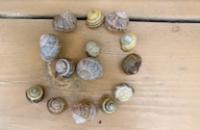
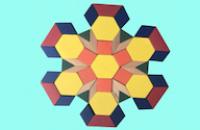
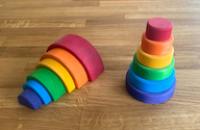
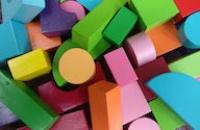
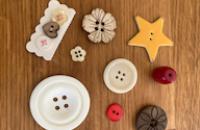
Children often enjoy playing with tubes, rolling them, putting things in them and rolling things down them.
Adults could provide an assortment of all kinds of tubes, for example from the insides of wrapping paper, new tubes for hamsters/guinea pigs, straws, large ones from carpets etc.
The Activity
This is very much a child-initiated activity with the children freely playing with the tubes, perhaps making a telescope, perhaps blowing through them, perhaps rolling things down them, perhaps laying them on their side and forming a stack, etc.
Encouraging mathematical thinking and reasoning:
Describing
Tell me about the tubes you are using.
What are you using the tubes for?
Reasoning
How could you use another tube?
I like what you have done. How would you do it again?
Opening Out
Can you explain to ... what you have done?
What could you do with your tube next?
Recording [At the conclusion]
How can you show what you've done/made/discovered?
The Mathematical Journey
Size and measures:
- using language to compare the sizes of the tubes, for example, wider, narrower, longer, shorter, fatter, thinner etc.
- developing language to describe the sizes of things going through the tubes
Properties of shape:
- understanding and appreciating the properties of the tubes (of any cross-section) which make them good for ...
- knowing what rolls well
Position and spatial properties:
- learning where to place the tubes to achieve what you want
- talking about where the tubes are in relation to things around them and other tubes
Development and Variation

There may be tubes that will slide inside each other, producing a telescope effect, which can lead to other discussions about length.
You could use gutters to channel water, sand or small pebbles.
Further activities that help children experience the properties of other shapes may be appropriate to lead on to from this one, such as Building Towers and Making Caterpillars.
Resources
An assortment of cardboard tubes e.g. carpet tubes, kitchen roll tubes, music rain sticks ...
Play tunnel (the collapsible kind).
Various food containers with different cross-sections.
Download a PDF of this resource.

